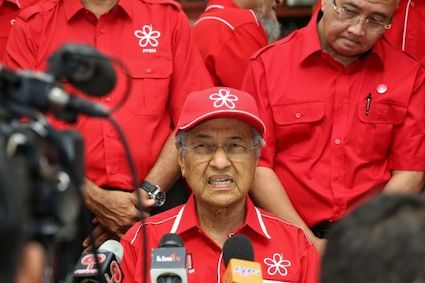
(Mysinchew) – Malaysia has been independent for 62 years now. However, if we were to look back at the country’s history, we would see that interracial relationship remains frail, and we still have to work very much harder to bring about true solidarity among Malaysians.
A recent minor road accident involving individuals of different races turned fatal as both sides lost their calmness, and the incident later developed into a racial issue.
As we usher in the nation’s 62nd birthday, it is high time for Malaysians, in particular our politicians, to conduct an inner soul-searching to identify what exactly has made our interracial relationship so vulnerable such that any incident big or small could be interpreted from the perspectives of race.
Road accidents aside, snatch thefts, robberies and break-ins can all be generalized as being exclusive to one specific ethnic group.
Lack of interactions, tolerance and mutual trust could be one reason. Have we ever asked ourselves how many non-Chinese friends we have, or how often we talk to them? If the same question is posed to our Malay and Indian compatriots, I’m afraid they will find it equally hard to come up with a sincere answer.
Anyone who has visited a government office will invariably grumble about the lax attitude and undesirable efficiency of our civil servants. As most of the civil servants are Malays, a stereotyped impression has been created.
In a similar manner, the Malay society generally thinks that Chinese are wealthy, more so after Tun Mahathir’s sweeping statement.
Because of the quota system, Chinese students have been denied their places in public universities even if they have scored well in examinations. In the event they finally make it to a government university, they will not be offered the courses of their choice.
Unfortunately, PM Mahathir and education minster Maszlee Malik do not think this is a problem. To them, Chinese families are rich enough to send their children to private institutions or overseas.
All this could be attributed to a dearth of mutual trust and interactions while the divisive remarks of politicians have further entrenched this phenomenon.
Umno politicians’ “Malay first” advocacy as well as their much cherished “Tanah Melayu” claim and “non-Malays are pendatang” mentality, will only do more harm than good to national unity.
Even PPBM politicians have jumped on the bandwagon. On the Seni Khat issue, entrepreneurship development minister Mohd Redzuan Md Yusof argued that the Malays had been overly tolerant and accommodating…”
So, we are not wrongly accusing them by saying PPBM and Umno are actually sharing the same genes.
Tourism Malaysia has kept emphasizing that Malaysia is “Truly Asia”, but this slogan stays only on the lips and is never reflected in the country’s policy-making machinery. Government leaders, both from past and present administrations, have not put in adequate effort to lift the country.
Non-Malay communities in this country have held no objection to the government’s initiative to take care of underprivileged Malays, so long as the policy is fair and just. The thing now is: whenever non-Malays are fighting for their deserved rights, the Malays will feel instantly intimidated.
It is not wrong for Dong Jiao Zong to defend Chinese primary schools to ensure their integrity. As soon as Mahathir said “Dong Zong is racist”, we started to hear voices calling for the organization’s ban.
If we were to look back at past experiences, the fears of local Chinese and Indian communities are not completely unfounded, as evidenced by the countless unfavorable measures adopted by the education ministry in the past.
To be honest, the mere existence of Chinese primary schools has enriched the country’s cultural diversity. SJKCs are not only places for young Chinese Malaysians to learn, but also students from other ethnic backgrounds such as the Malays, Indians, Orang Asli and East Malaysian communities. The non-Chinese enrollment in SJKCs nationwide now stands at 18%!
Having said that, the Malay society knows too little about these schools. What they know about SJKCs has largely come from the mouths of politicians and government officials, while the inflammatory remarks of irresponsible politicians have instilled in them very negative impressions of SJKCs, believing that these schools constitute a major stumbling block to national unity.
Take the Jawi issue for instance, Amanah president Mohamad Sabu has accused Sin Chew Daily of fanning racial sentiments, not unlike Utusan Malaysia.
Mat Sabu does not know Chinese, and has little idea about the whole development of this issue. All the negative information he has been fed with has come from his cabinet colleagues and PH leaders, including one who has regularly blasted us for cooking up the Jawi issue. You know whom I’m talking about.


No comments:
Post a Comment
Note: Only a member of this blog may post a comment.